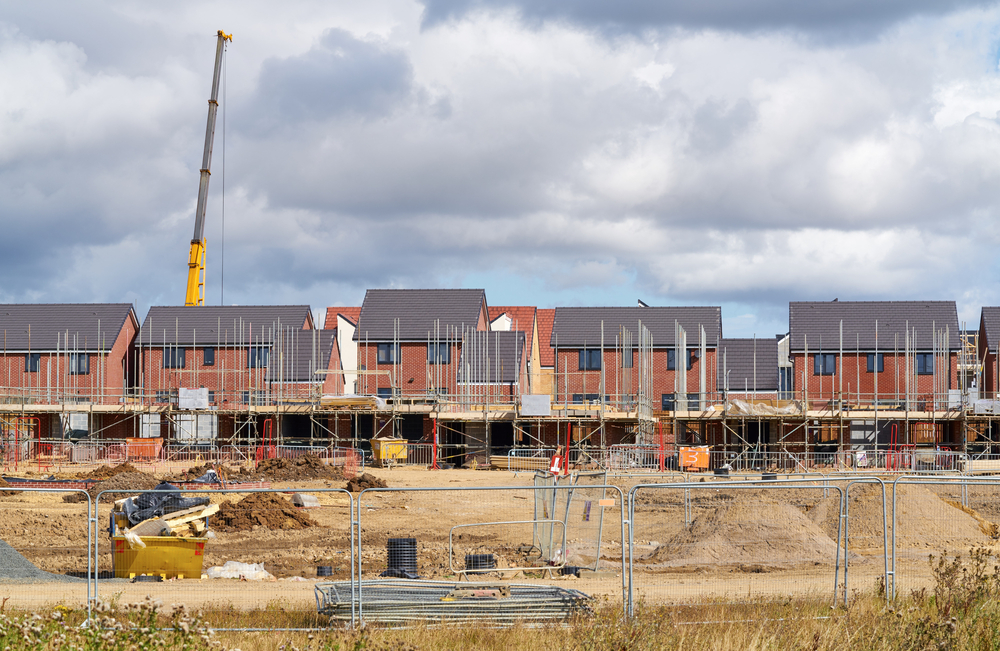First-time Buyer
Help to Buy amid the pandemic: What you need to know

Help to Buy has been at the very heart of the new build market since 2013, backing more than 270,000 home purchases. But next year, the scheme is set to see its biggest change yet. Here’s what you need to know.
From April 2021, Help to Buy will be restricted to first-time buyers only, while a series of regional price caps will come into place across England.
If you’re planning a purchase through the current scheme, there are two deadlines you’ll need to consider. Developers must now physically complete the construction of properties available under the current phase by 28 February 2021, while buyers must legally complete by 31 March 2021.
That might sound like plenty of time, but the mortgage market is experiencing unprecedented demand at the moment, so it’s time to consider getting your plans on the move. Perhaps more importantly though, with the impact of Covid-19, it’s also the time to speak to an independent mortgage adviser to understand what other options might be available.
How does the scheme work?
Help to Buy has been around for seven years now. With just a 5% deposit, buyers using Help to Buy can benefit from a 20% (or 40% if buying in London) government ‘top-up’, meaning they only need to secure a mortgage on the remaining 75% of the property’s value. The government loan is interest free for the first five years, but will incur interest thereafter, and there are many lenders that offer Help to Buy mortgages.
Plan carefully
The housing market has seen record levels of demand since re-opening after the lockdown. That’s positive news as the economy tries to recover from the impact of Covid-19, but these heightened levels of buyer activity have caused delays to mortgage applications.
For some customers, it’s now taking as much as a month or more to get a mortgage offer. Other areas of the market from conveyancers to surveyors have been affected by the pandemic too, so it’s important to remember that the timeline you might have previously had in mind, may now be much longer than expected.
Leaving your mortgage application too late could lead to disappointment, and regardless of whether you qualify for the next phase of Help to Buy, there’s a risk you could have to restart your application or even lose out altogether. Take a prudent approach – speak to an independent adviser about your plans and kickstart the homebuying process as early as you can.
Needs and circumstances
Has your vision of your ideal home changed since the pandemic started? You’re not alone. Our research found that Covid-19 has brought about significant changes in the areas and types of properties people are looking to buy. Nearly a fifth (18%) of buyers are now planning to purchase homes in more rural areas than before the crisis, with another 17% intending to buy further away from their place of work.
If you’re set on using Help to Buy, one crucial thing to consider is whether you’re still planning to buy a new build home. The scheme is only available on new homes, so if you’ve spotted an older property you like the look of, you must remember that the financial backing of the scheme won’t be an option.
And with fewer high loan-to-value mortgages of 90% and above available on the market at this time, this is an important factor to keep in mind before you’re set on a particular house or flat.
At the same time, the impact of Covid-19 on the economy means that many lenders are now taking a closer look at mortgage applications to make sure borrowers can comfortably afford their monthly repayments.
While Help to Buy can help you get on the ladder with as little as a 5% deposit, if you’ve been furloughed or work in an industry that has been hard hit by the crisis, you’ll need to be able to clearly demonstrate that you can afford any repayments and that your job is secure for the future.
Different lenders require different information, so seeking out the support of a mortgage adviser is critical. These experts will help you to understand what information you need to have at hand. They’ll also have access to many lenders that are not available on the high street, including specialist lenders for those with complex credit histories, which might improve your chances of finding a mortgage.
Explore other options
Help to Buy is not the only government-backed route for buyers either. Advisers will be able to show you what other great options are available and that’s particularly important if you don’t qualify for the next phase of Help to Buy.
Shared ownership is one such option and allows prospective homeowners to purchase a share in a property – typically between 25% and 75% – with the remaining portion owned by a housing association. A standard mortgage is repaid on the portion of the property that is owned and a below-market-value rent paid to a housing association on the remaining amount. There is also the option to ‘staircase’ in the future to help owners build up a greater share of equity until the property is eventually owned outright.
Whichever route you’re thinking of taking, this really is the moment to seek out professional advice if you’re planning on stepping onto or up the housing ladder. Changes to the Help to Buy scheme are really just around the corner and in today’s busy market, time really is of the essence. But perhaps more than ever, it’s important to think about your options, consider how the pandemic may have changed your plans and speak to an adviser to find the best route forward.
Kevin Roberts is director, Legal & General Mortgage Club